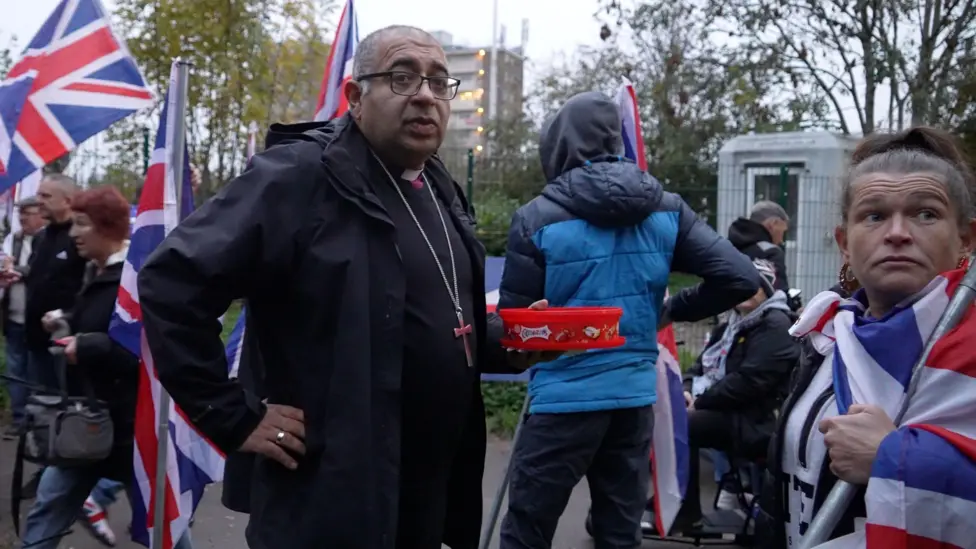Over the past couple of weeks many bytes of social media have been transmitted concerning the "Put Christ Back Into Christmas" carol event in London. It is not for me to comment on an individual's past record and whether their recent conversion is genuine - that is between God and that person in any case. Other people attended the actual event on Saturday 13th and are now commenting for us. The impression seems to be that it was a peaceable open air carol event, celebrating the birth of Jesus with testimony and calls to the public to put their trust in Him.
The aspect of the pre-event traffic which caught my own eye was a comparison between the 'public messaging' and the private 'supporter messaging' when the event was first announced. One commentator helpfully quoted verbatim from both the sources, which gave a snapshot of the possible original motivation behind the event. That worried many, because a significant component of the private messaging resonated with the 'Take back our country' sentiment, which I argue is simply not valid as a Christ-led mission sentiment.
From a mission perspective there was another more subtle (but no less important) issue in that first private message to supporters. Throughout the first rallying call the repeated focus was a desire for a return to & celebration of our Christian heritage.
This is an important point! Let us be clear: Our mission is to point people to Jesus as Lord ... not to restore a particular heritage. There is a difference between the two.
Celebrating heritage is often a good thing, and need not be a threat to anyone (I am pleased when my Asian nearby neighbours do things that resonate with and celebrate their heritage, it causes me no problem at all). We might also lament a loss of aspects of our own heritage, and feel that key aspects of what we perceive as Christian heritage have been diluted or even replaced over years. All that is valid (though we probably also want to acknowledge aspects of our heritage, labelled as Christian, which do not in fact measure up to how we now understand of what it means to be Christ-like).
If people want to gather a large crowd and celebrate what they perceive to be Christian heritage, especially around the Christmas story, that at one level is fine ... but it is not necessarily the same as the Matthew 28 commission to point people to Jesus, so that Jesus may become their Lord and they learn to follow Him as His Spirit directs them. Restoring and/or celebrating a certain heritage of yester-year does not in itself make Jesus-followers, only helping people encounter the Risen Lord and move forward in Him does that. It is the latter that is our mission.
Perhaps the event on Saturday did enable some in the crowd to see Jesus and encounter Him afresh or even for the first time in their lives. If so, that is fantastic! it wouldn't surprise me if it happened, because God is clever like that and turns up in unexpected places, often working in spite of the way we do things! But let us sit light with heritage, lamenting loss where that is troubling, but in any case pointing to Jesus such that whoever we meet in a wonderfully diverse society and wider world might see Him and worship Him themselves.








